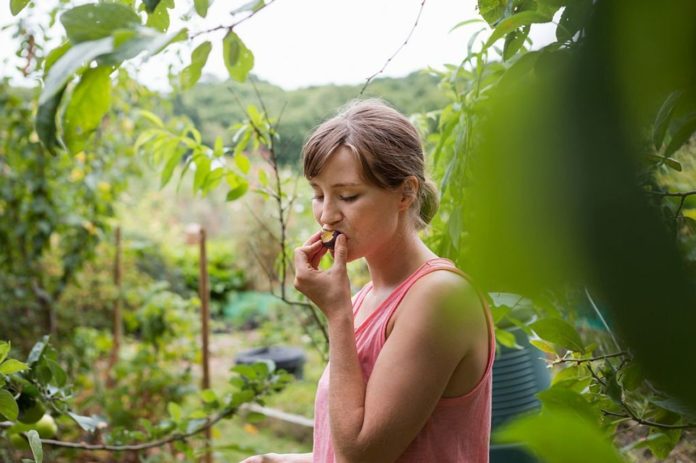Cardiovascular disease is the leading cause of death in the world, representing a serious public health problem.
According to research published in the Journal of Medicinal Food, eating prunes every day can lower cardiovascular disease (CVD) risk factors such as antioxidant capacity and inflammation in healthy postmenopausal women.
Prunes can reduce the risk of heart disease, according to research performed by San Diego State University.
According to lead researcher Shirin Hooshmand, “When you look at our prior research and the research of others combined with this new data, you’ll see consistent evidence that eating prunes can promote health.”
Researchers discovered that consuming 50 grams of prunes (about 5-6 prunes) each day for just 6 months improved CVD risk indicators, such as elevating the body’s “good” cholesterol, known as HDL, and lowering the ratio of total cholesterol to HDL.
Consuming prunes on a daily basis also increased antioxidant capacity and decreased levels of the inflammatory cytokines interleukin-6 and tumor necrosis factor-alpha, both of which are linked to CVD risk. Despite adding prunes to the typical diet, the study participants’ BMI and weight remained stable throughout the trial.
During the six-month study, 48 healthy postmenopausal women were put into three groups: a control group that ate no prunes, and two treatment groups that ate either 50 grams or 100 grams of prunes daily. The women’s diets and lives were otherwise unchanged from before the trial. At the start and end of the trial, various biomarkers of CVD risk were gathered to see if there were any improvements in those biomarkers among individuals who ate prunes. Surprisingly, there were some similarities in good results between those who ate 50 grams of prunes and those who ate 100 grams, suggesting that include 5-6 prunes or more in one’s daily diet may reduce the risk of cardiovascular disease.
“Reducing chronic inflammation and increasing antioxidant capacity in the body is associated with lower risk of CVD, along with many other diseases,” adds Mark Kern. “Not only does this study show that prunes may be a good way to reduce inflammation and increase antioxidant capacity, it also suggests that eating prunes every day may improve cholesterol levels in postmenopausal women.”
Natural antioxidant-powered phenolic compounds, fiber, and other nutrients are thought to play a role, albeit the precise methods and individual chemicals that contribute to these positive benefits have yet to be established. Prunes may be a potential and convenient addition to the diet for reducing CVD risk and inflammation while also enhancing antioxidant capacity, according to one study.
The study adds to a growing body of information about prunes’ overall health and nutrition benefits, including their ability to improve bone health. Prunes have been shown to have a positive bone response in postmenopausal women in previous clinical studies. Researchers recently discovered that after consuming 50 grams of prunes daily for 16 months, overall bone mineral density rose in a postmenopausal woman with osteopenia. In May of last year, the Bone Reports released this case report.
Source: 10.1089/jmf.2020.0142
Image credit: Getty
You were reading: A Prune Or Six Daily Can Keep Inflammation and Heart Disease at Bay
